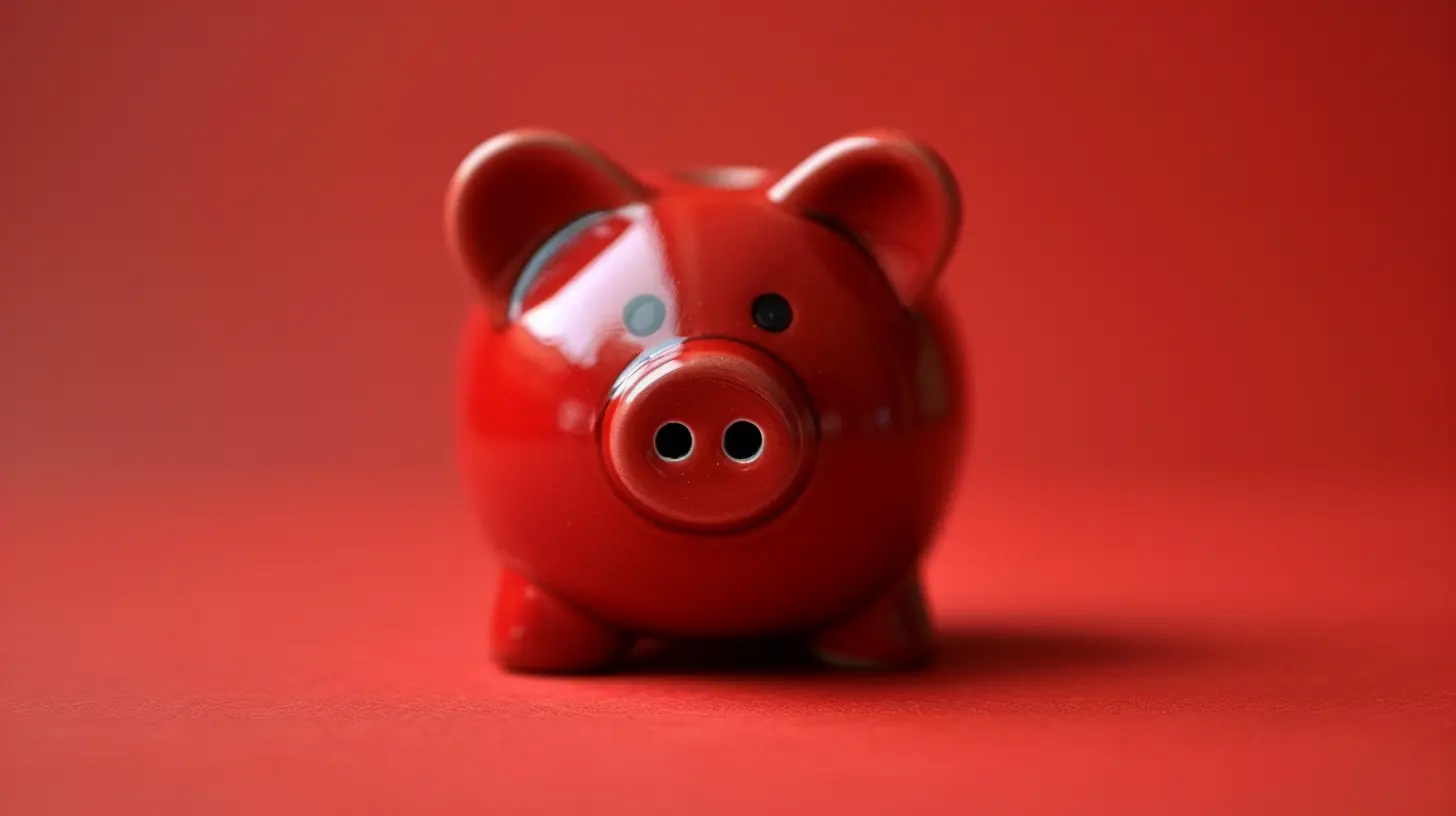Building a Budget That Works for You
1 March 2025
Managing your money can sometimes feel like trying to juggle flaming torches while riding a unicycle—it's intimidating, overwhelming, and, frankly, a bit scary. But here's the deal: budgeting doesn’t have to be a brutal task that feels like punishment. In fact, when done right, a budget can be your most powerful tool for taking control of your finances and, ultimately, your life. Think of it as the GPS for your money—it helps you navigate, avoid dead ends, and get to where you want to go.
So, how do you build a budget that actually works for you, instead of one that feels like it’s working against you? Let’s break it down step-by-step. 
Why Do You Even Need a Budget?
Before we dive into the nitty-gritty, let’s talk about why budgeting is important. Seriously, why bother?For starters, a budget helps you understand where your money is going. You wouldn’t drive a car without checking how much fuel you’ve got, right? Similarly, you shouldn’t go through life without knowing where your cash is flowing. Whether you’re living paycheck to paycheck or trying to save up for that dream vacation, budgeting is the foundation of financial health.
Plus, let’s be honest—having a plan for your money just makes life less stressful. When you know you’re on top of your bills and savings goals, there’s less room for anxiety to creep in. 
Step 1: Know Your "Why"
Before grabbing a calculator or downloading a fancy budgeting app, ask yourself this: What’s my reason for budgeting?Maybe you want to pay off debt, save for a house, build an emergency fund, or just stop feeling broke at the end of every month. Your "why" is your motivation, and it’ll help keep you on track when sticking to your budget feels tough.
Think of this as planting the seed for your financial garden. If you nurture that purpose, it’ll grow and keep you inspired. So, what’s your "why"? Write it down somewhere you can’t ignore (like on your fridge or the lock screen of your phone). 
Step 2: Track Your Spending
Here’s the harsh truth: you can’t build a budget without knowing where your money is already going. And yeah, this part can be eye-opening—kind of like realizing how many calories are in your favorite fast-food meal.Start by tracking EVERYTHING you spend for at least a month. Every coffee, subscription, grocery trip, or Amazon splurge—write it all down or use an app like Mint or YNAB (You Need A Budget).
When you’ve got all your spending laid out, categorize it. Do you spend more on eating out than you thought? Are subscriptions sneaking up on you? Are you overspending on impulse purchases? This step is all about awareness. 
Step 3: Set Realistic Goals
Now that you know where your money is currently going, it’s time to decide where you want it to go. And spoiler alert: this is where the fun starts!Ask yourself:
- What are your short-term goals? (E.g., saving for a weekend getaway, paying off a credit card, etc.)
- What are your long-term goals? (E.g., buying a home, building a retirement fund, etc.)
Set specific goals that feel realistic. Saying, "I’m going to save $10,000 this year" is great, but if you’re currently living paycheck to paycheck, it might not be achievable just yet. Start small and stack your wins over time.
Step 4: Choose a Budgeting Method
Here’s the part where you get to personalize your budget. There’s no "one-size-fits-all" when it comes to budgeting, so choose a method that aligns with your personality and preferences. Here are a few popular options:1. The 50/30/20 Rule
This method is simple and beginner-friendly. Here’s how it works:- 50% of your income goes to needs (rent, utilities, groceries).
- 30% goes to wants (dining out, entertainment, hobbies).
- 20% goes to savings and debt repayment.
It’s straightforward and great for people who want a no-fuss approach.
2. Zero-Based Budgeting
With zero-based budgeting, every dollar is assigned a job. At the end of the month, your income minus expenses equals zero. This method gives you ultra-control over your money and is perfect for Type-A personalities.3. The Pay-Yourself-First Strategy
This focuses on prioritizing savings. As soon as you get paid, you immediately set aside a chunk for savings and investments. The rest is yours to spend on essentials and fun.Choose a method that fits your style. If one doesn’t work, try another—it’s like dating until you find "the one."
Step 5: Cut Back Where It Makes Sense
Now comes the part that has most people groaning: cutting back on expenses. But don’t worry—I’m not going to tell you to stop buying coffee or live on ramen noodles.Take a look at your spending categories from earlier and ask yourself: Are there areas where you’re overspending and don’t feel much joy? Maybe that gym membership you’ve barely used? Or those subscription services you forgot you even had?
Cutting back doesn’t have to mean deprivation. It’s about prioritizing what truly matters to you. If you love your morning lattes, keep them. Just maybe skip the takeout for dinner three times a week.
Step 6: Automate and Simplify
Here’s a pro tip: the less you have to think about your budget, the easier it’ll be to stick to it. Automation is your best friend here.Set up automatic transfers for your savings the day your paycheck hits. That way, your money’s working for you before you even have the chance to spend it. You can also automate bill payments to avoid late fees and that dreaded "Oops, I forgot!" moment.
Think of automation as putting your finances on autopilot—it saves you time, effort, and stress.
Step 7: Regularly Review and Adjust
Here’s the thing about budgets: they’re not set in stone. Life happens. Maybe your rent goes up, or you get a raise, or your goals change. That’s why reviewing your budget regularly (at least once a month) is key.Ask yourself:
1. Did I stick to my budget this month?
2. Did I overspend in any category?
3. Are my goals still realistic?
Think of your budget like a living, breathing thing. It evolves as your life does.
Step 8: Reward Yourself
Let’s not forget the fun part—rewarding yourself! Budgeting doesn’t mean you have to live like a monk. In fact, a budget that’s too restrictive is doomed to fail.Set aside a little "fun money" each month for guilt-free spending. Whether it’s splurging on a fancy dinner, buying a new book, or saving up for a weekend trip, those rewards will keep you motivated.
The Bottom Line
At the end of the day, building a budget that works for you is about balance. It’s not about depriving yourself or sticking to a rigid plan that makes you miserable. It’s about creating a system that helps you live the life you want while staying on top of your finances.Remember: a budget is a tool, not a punishment. The more you practice, the better you’ll get at it. And before you know it, managing your money will feel as second nature as riding a bike—minus the flaming torches.
all images in this post were generated using AI tools
Category:
Financial EducationAuthor:

Zavier Larsen
Discussion
rate this article
15 comments
Meagan Benson
Excited to explore personalized budgeting tips that truly suit my needs!
April 3, 2025 at 12:21 PM

Zavier Larsen
I'm glad to hear that! Personalizing your budget can make a big difference. Enjoy the journey!
Raven McGuire
Building a budget isn’t just about crunching numbers; it’s about making your money work as hard as you do! If your budget feels like a jail sentence, it’s time for a makeover. Get fierce with your finances and show those bills who's boss! After all, you work too hard to be broke!
March 25, 2025 at 1:13 PM

Zavier Larsen
Absolutely! A budget should empower you, not restrict you. Let's revamp those finances and take control!
Reagan McKnight
Creating a budget can feel daunting, but remember: it’s your financial roadmap! Embrace the journey, have fun with it, and celebrate each small win along the way!
March 24, 2025 at 1:30 PM

Zavier Larsen
Absolutely! A budget is a powerful tool for achieving your financial goals, and celebrating small victories makes the journey enjoyable and motivating.
Wade Jenkins
While creating a personalized budget is essential, it’s crucial to remain flexible. Rigid plans can lead to frustration; adapt your budget as life changes to maintain financial health and achieve long-term goals.
March 23, 2025 at 4:23 AM

Zavier Larsen
Absolutely! Flexibility in budgeting is key to adapting to life's changes while staying on track with your financial goals.
Bradley Gibson
In the shadows of every financial decision lies the promise of freedom—or the weight of regret. As you embark on crafting a budget that aligns with your true self, remember: every dollar tells a story. Will yours lead to prosperity, or vanish into the abyss? Choose wisely.
March 21, 2025 at 7:36 PM

Zavier Larsen
Thank you for the insightful comment! Every financial choice indeed shapes our journey. Let's craft budgets that reflect our values and aspirations.
Penelope Snow
Creating a personalized budget is essential; it empowers you to manage money effectively and achieve goals.
March 19, 2025 at 7:48 PM

Zavier Larsen
Absolutely! A personalized budget is a powerful tool for financial success and goal achievement.
Olympia Wolfe
Creating a personalized budget requires assessing income, prioritizing expenses, and setting realistic goals, ensuring financial stability while accommodating individual lifestyle needs.
March 16, 2025 at 8:23 PM

Zavier Larsen
Absolutely! A personalized budget is key to achieving financial stability while aligning with your unique lifestyle. Prioritization is crucial!
Edith McAdams
Crafting a personalized budget is essential for financial success. Focus on your unique goals, track spending diligently, and adjust as needed to ensure long-term sustainability.
March 14, 2025 at 9:17 PM

Zavier Larsen
Thank you for your insightful comment! Personalization and adaptability are indeed key to achieving financial success.
Niko McMaster
Creating a personalized budget empowers financial control and helps achieve your financial goals effectively.
March 10, 2025 at 12:38 PM

Zavier Larsen
Absolutely! A personalized budget is key to taking charge of your finances and reaching your goals efficiently.
Fennec McFarlane
Thank you for sharing these insightful tips on budgeting! Creating a personalized budget can truly empower individuals to take control of their financial future. Your practical advice makes budgeting feel approachable and achievable. I’m excited to implement these strategies and look forward to more great content like this!
March 8, 2025 at 1:48 PM

Zavier Larsen
Thank you for your kind words! I'm glad you found the tips helpful and that you're excited to implement them. Stay tuned for more content!
Seraphis Carter
Great tips on personal budgeting! Tailoring your budget makes financial goals more achievable and realistic.
March 8, 2025 at 5:52 AM

Zavier Larsen
Thank you! I'm glad you found the tips helpful. Tailoring your budget is key to reaching your financial goals!
Sylvan Barker
Effective budgeting requires clarity on income and expenses. Start by tracking spending habits, setting realistic goals, and adjusting as needed. A personalized approach ensures your budget aligns with your financial priorities and lifestyle.
March 6, 2025 at 1:43 PM

Zavier Larsen
Thank you for your insightful comment! Tracking spending and setting realistic goals are indeed crucial steps for creating a personalized budget that fits individual financial priorities and lifestyles.
June Oliver
Building a budget is like trying to get a cat to take a bath—challenging but totally worth it! Just remember, if it doesn’t work out, it’s not you; it’s your budget. Swap a line item for pizza, and you’re golden!
March 5, 2025 at 5:38 AM

Zavier Larsen
Absolutely! Finding the right balance can be tricky, but flexibility is key—sometimes a little pizza can go a long way in keeping your budget enjoyable!
Ellie Black
Budgeting doesn’t have to be a drag! Think of it as giving your money a fun little roadmap—so it can take you on adventures instead of getting lost in the couch cushions!
March 4, 2025 at 1:27 PM

Zavier Larsen
Absolutely! A budget can be your adventure guide, helping you make the most of your money and enjoy life to the fullest!
Kenna Pope
Great insights on budgeting! I'm curious—what are some unique strategies you recommend for sticking to a budget long-term? Personal experiences would be fascinating to hear!
March 2, 2025 at 1:25 PM

Zavier Larsen
Thank you! One unique strategy is to automate savings by setting up transfers to a separate account right after payday. Additionally, using budgeting apps that track your spending can provide real-time insights and help you stay on course. Personally, I found setting small, achievable goals incredibly motivating!
MORE POSTS

Cash Flow Tactics for Managing Rapid Business Growth

How Interest Rates Shape the Stock Market Trends

Dividend Aristocrats: The Best Long-Term Income Stocks

How to Build a Diversified Dividend Portfolio

Credit Cards: Friend or Foe?

The Power of Saving Early: Why Time Is Your Greatest Asset

Debt Management Strategies for Long-Term Financial Health

Safe Day Trading: How to Protect Your Capital

How Business Loans Are Structured Based on Interest Rates

Cybersecurity and Asset Protection: Guarding Digital Wealth